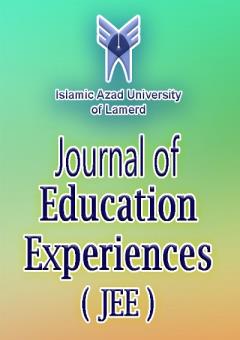Investigating the Components of Childhood Socialization from the Viewpoint of Khawaja Nasir al-Din al-Tusi
محورهای موضوعی : 0Vahid Moradkhah 1 , Mohammad Mazidi 2 , Ai mohammad Sajedi 3 , Mahbobe Alborzi 4
1 - PhD in Philosophy of Education, Shiraz University, Shiraz, Iran
2 - Department of Educational Fundamentals, Faculty of Educational Sciences and Psychology, Shiraz University, Shiraz, Iran
3 - Faculty of Theology, Shiraz University
4 - Faculty of Educational Sciences, Shiraz University
کلید واژه: Khawaja Nasir al-Din al-Tusi, socialization, childhood,
چکیده مقاله :
The present research aims to understand the components of socialization in childhood from the viewpoint of Khawaja Nasir al-Din al-Tusi. This study is a qualitative one with a non-emergent design; and for data collection, the documentary method and regular or systematic note-taking method are used. In this study, a descriptive-interpretive approach and inductive content analysis method are used for data analysis. In order to extract the components of socialization and answer the research question, data are analyzed using a constant comparative method until saturation point, ensuring that no newer information is obtained. Resulted components based on the viewpoint of Khawaja Nasir al-Din al-Tusi include family institution and socialization, courage, wisdom, chastity, justice, social work division, co-operation, social affection and solidarity, conscious acceptance of social roles and social norms and laws, Social etiquette. Finally, we discuss and conclude on the subject, limitations and suggestions.
The present research aims to understand the components of socialization in childhood from the viewpoint of Khawaja Nasir al-Din al-Tusi. This study is a qualitative one with a non-emergent design; and for data collection, the documentary method and regular or systematic note-taking method are used. In this study, a descriptive-interpretive approach and inductive content analysis method are used for data analysis. In order to extract the components of socialization and answer the research question, data are analyzed using a constant comparative method until saturation point, ensuring that no newer information is obtained. Resulted components based on the viewpoint of Khawaja Nasir al-Din al-Tusi include family institution and socialization, courage, wisdom, chastity, justice, social work division, co-operation, social affection and solidarity, conscious acceptance of social roles and social norms and laws, Social etiquette. Finally, we discuss and conclude on the subject, limitations and suggestions.


